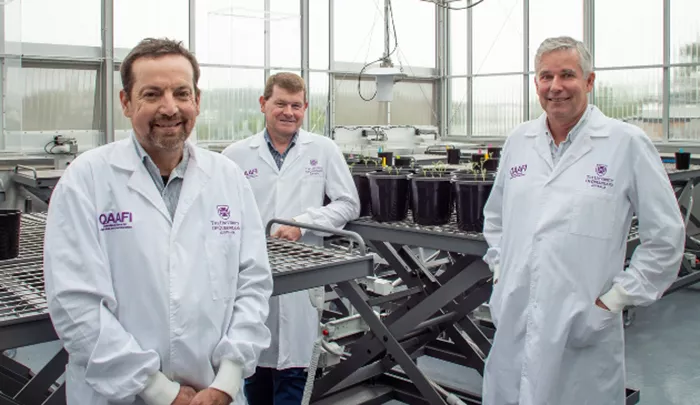Researchers at the University of Queensland are leading efforts to develop crops that are high-yielding, heat-tolerant, and disease-resistant, as well as cattle that produce fewer emissions and have superior feed conversion efficiency. Their goal is to create the so-called “ultimate genotype” that will significantly improve the performance of these species.
A new research paper, published by the university, outlines the challenges of current breeding strategies, which rely on conventional methods of crossing. These strategies are slow and can take many generations to achieve the desired genetic traits.
Professor Ben Hayes from the Queensland Alliance for Agriculture & Food Innovation (QAAFI) explains that the “ultimate genotype” could enhance the performance of top individuals in a species by up to six times. This has already been demonstrated in dairy cattle, wheat, and chickpeas.
“With millions of cattle and plants now genome profiled, we can visualize what the ultimate genotypes might look like,” Hayes said. “We believe that gene editing and synthetic biology can help us reach this target much faster.”
However, Hayes notes that traditional methods, such as speed breeding in crops and in vitro fertilization (IVF) in cattle, still take many generations to achieve the desired results. There are also concerns about animal welfare, as improvements in one trait can negatively impact others.
“The rapid pace of climate change and shifting consumer preferences mean that our targets are constantly evolving,” Hayes said. “This is where gene editing and synthetic biology can make a real difference. These technologies could help us reach our goals in just a few generations.”
Professor Ian Godwin, a plant geneticist at QAAFI, highlights the vast potential of these new approaches. “If successful, this technology could revolutionize plant and animal breeding,” he said. “We’re already making progress by editing one or two genes at a time, but our simulations suggest that editing many genes at once will bring even greater genetic advances.”
International collaboration is key to the success of these efforts, according to Godwin. Work is already underway through initiatives such as the International Research Training Group and the UQ-led ARC Training Centre in Predictive Breeding.
“We’re inviting other global genetics groups to collaborate with us,” Godwin said. “Our goal is to test these ideas on a wide scale and eventually move from the lab to real-world applications.”
The study, titled “Potential Approaches to Create Ultimate Genotypes in Crops and Livestock,” was published in Nature Genetics.
QAAFI, a research institute at the University of Queensland, focuses on addressing challenges in tropical and subtropical food and agribusiness sectors. It is supported by industry partners and the Queensland government, and works across a variety of fields, including crops, horticulture, animals, and food sciences.
Related topics:
- Plants Fight Back Against Climate Change by Adapting to New Conditions
- Searcy Tree Board Plants Oak to Honor Janett and Larry Crain at New Memorial Library
- Plant Scents Pave the Way for Sustainable Farming


